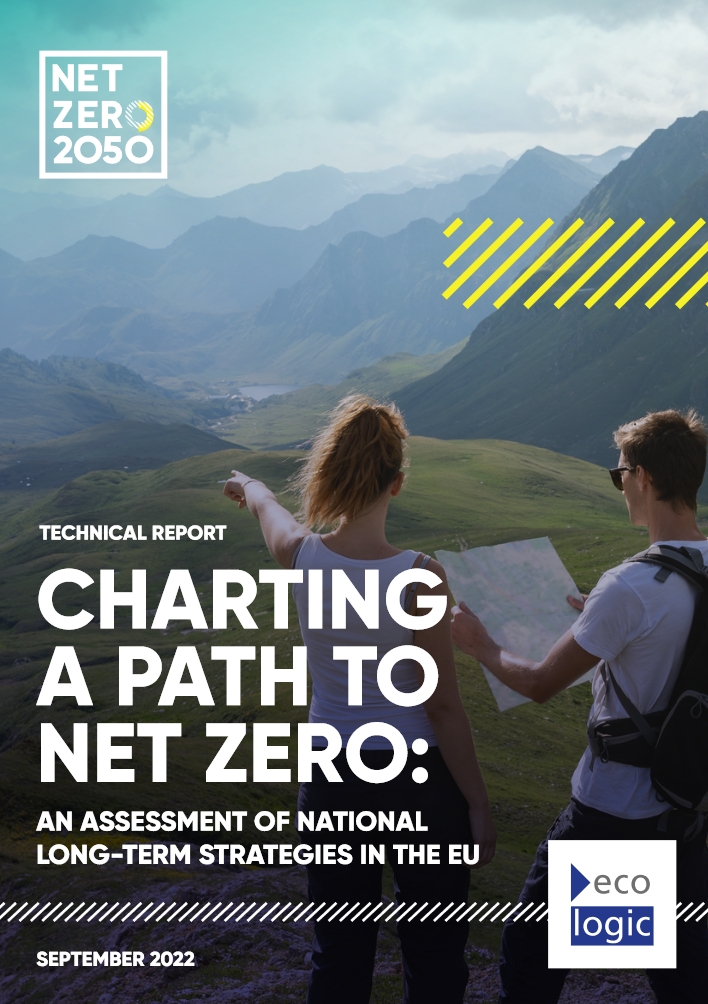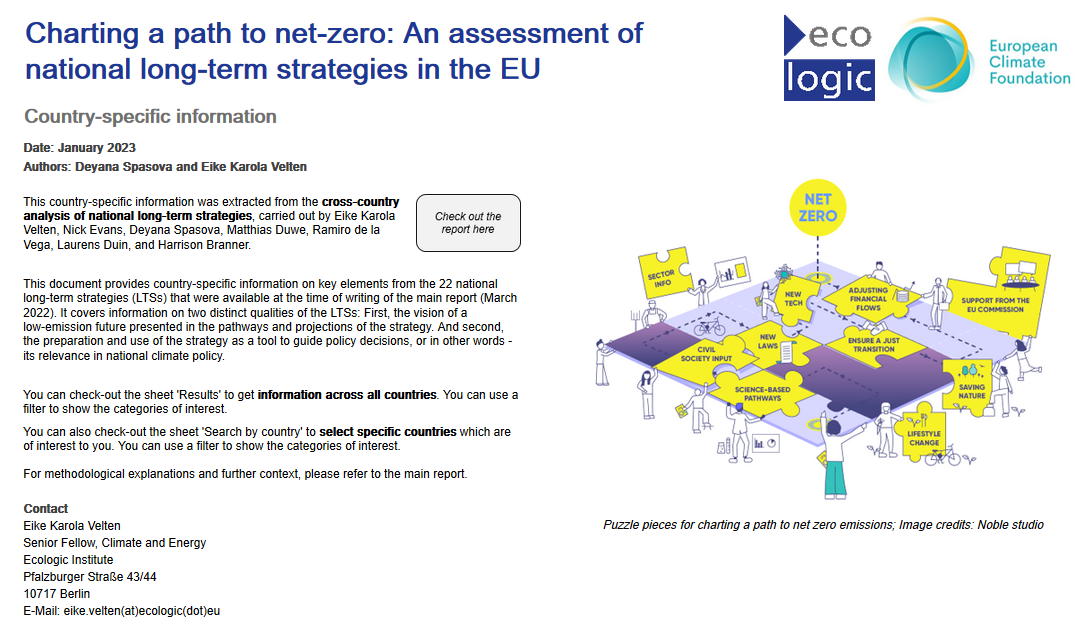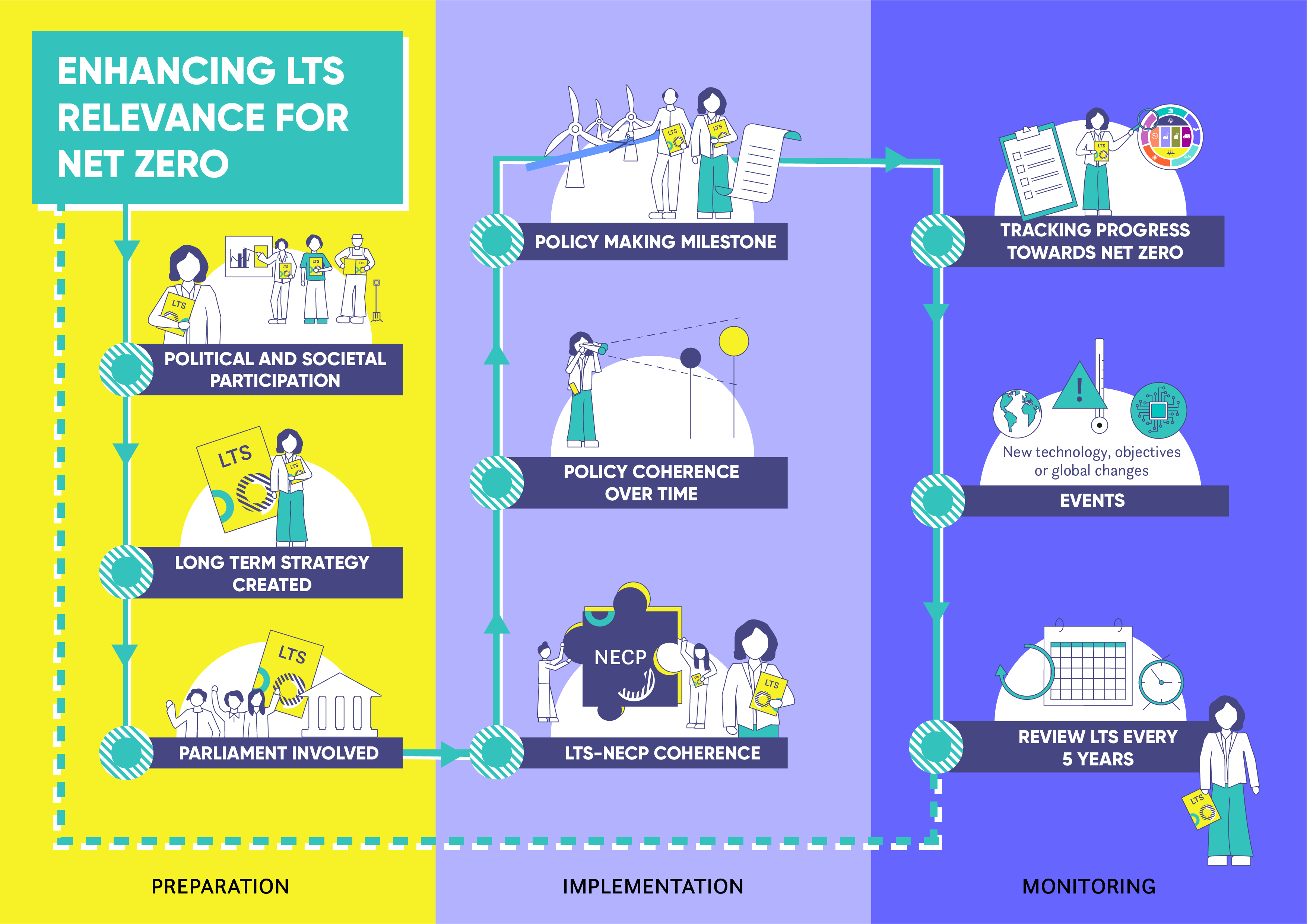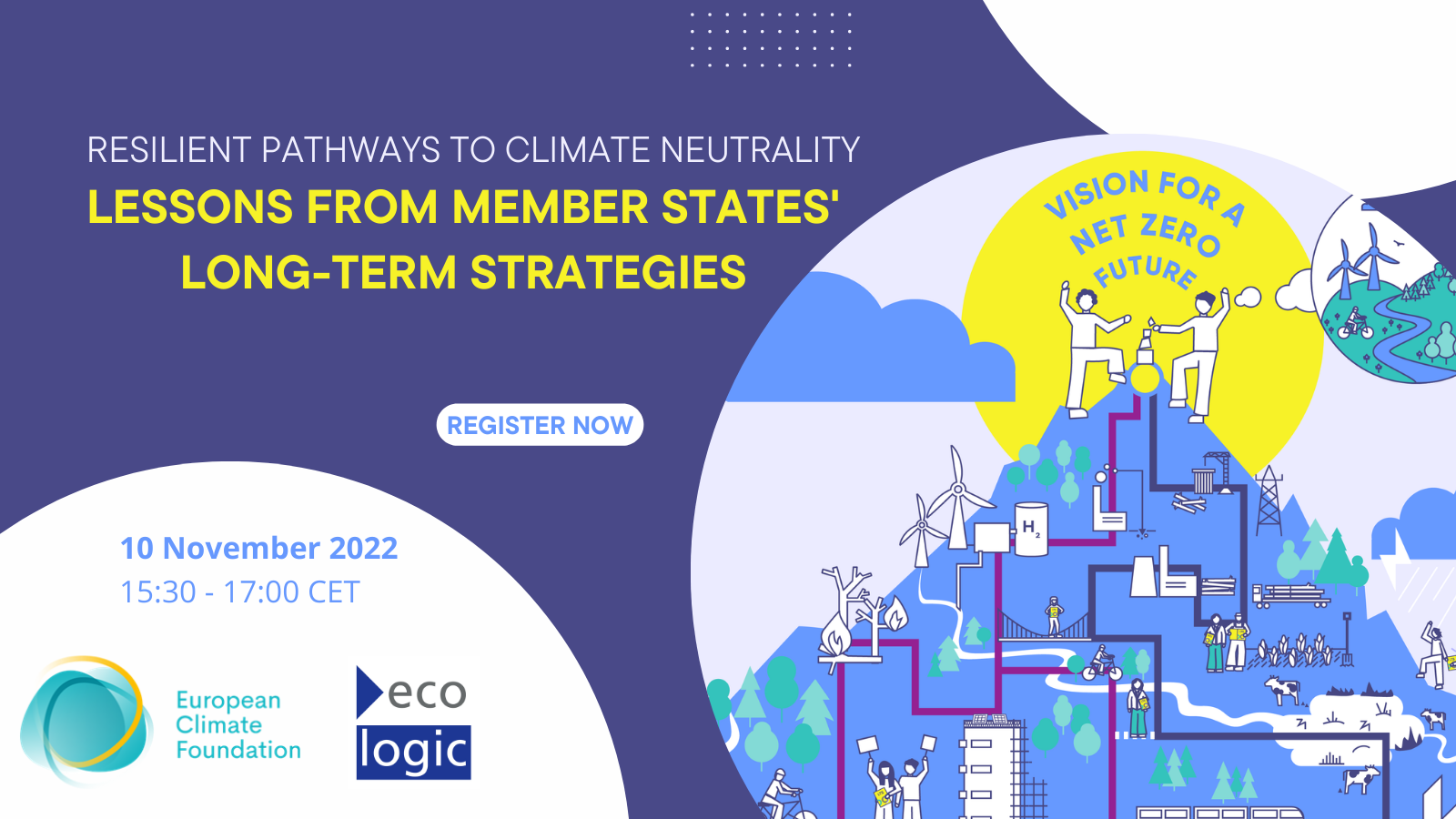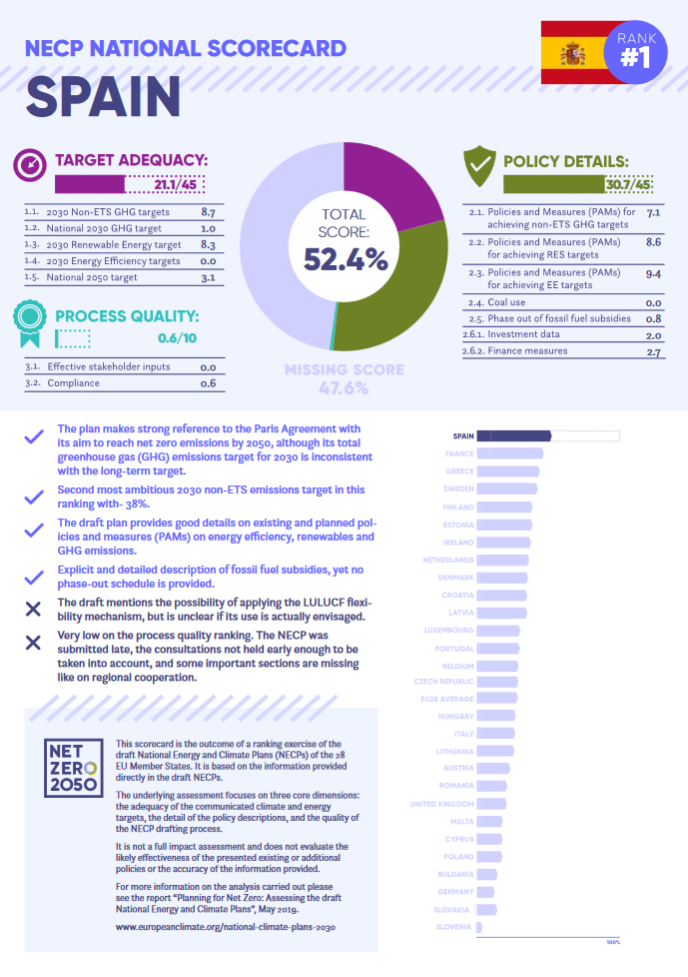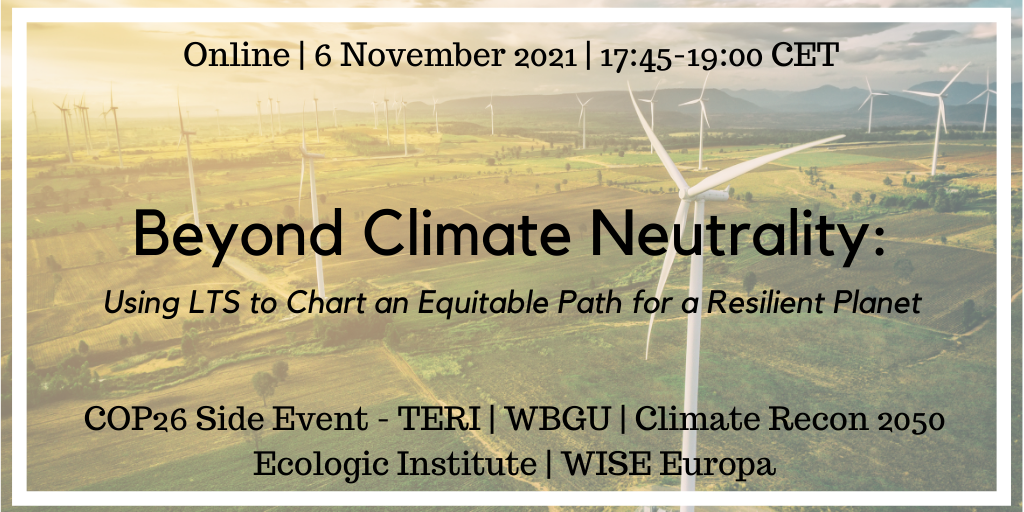Charting a Path to Net Zero
An assessment of national long-term strategies in the EU
- Publication
- Citation
Velten, Eike Karola, Nick Evans, Deyana Spasova, Matthias Duwe, Ramiro de la Vega, Laurens Duin, and Harrison Branner (2022): Charting a path to net zero: An assessment of national long-term strategies in the EU. Ecologic Institute, Berlin.
This report presents the findings from an assessment of 22 long-term strategies (LTSs) of the EU Member States available as of March 2022. It is complemented by a briefing that summarizes the key findings and recommendations, as well as an overview of the underlying country information.
The analysis looked at two distinct qualities of strategies: the vision of a low-emission future represented in the pathways and projections of the LTS as well as the preparation and use of the strategy as a tool to guide policy decisions, in other words its relevance in national climate policy.
We found that in several Member States, developing an LTS has had a positive impact on national policy already. In particular, the strategies from France, Portugal and Spain stand out as good practice examples for both vision and relevance. Many other countries showed good practice on one or more underlying elements of the analysis, such as the level of detail on specific sectors, public participation and clear monitoring cycles for the strategy.
However, to varying degrees most LTSs lack information and most LTS preparation processes fall short on inclusive and meaningful participation. This risks generating lower political support and ultimately reduces the use of the strategies as a tool to guide policies and interim targets.
To address these shortcomings, the report outlines the following recommendations:
The EU should amend the Governance Regulation 1) adding a mandatory template asking for more detail on the long-term vision (scenarios and targets) and on preparation and use of the document; 2) adding mandatory regular updates slightly ahead of the NECP updated, and 3) requesting more effective (early, meaningful, iterative) participation during preparation.
National governments should create national ownership of the long-term vision by 1) engaging a wide variety of interests in strategy preparation and revision including an independent peer review process using scientific expertise, 2) integrating a regular LTS review cycle in national policy-making; and 3) specifying a date for achieving climate neutrality at national level with a target for remaining greenhouse gas emissions and removal.
The European Commission should take an active role by 1) providing additional technical support, e.g., capacity support, common modelling tools or parameters; 2) launching a forum for good practice experience sharing among Member States, and for encouraging integrated planning processes across borders; and 3) enforcing compliance with the requirements for LTSs in the Governance Regulation.
